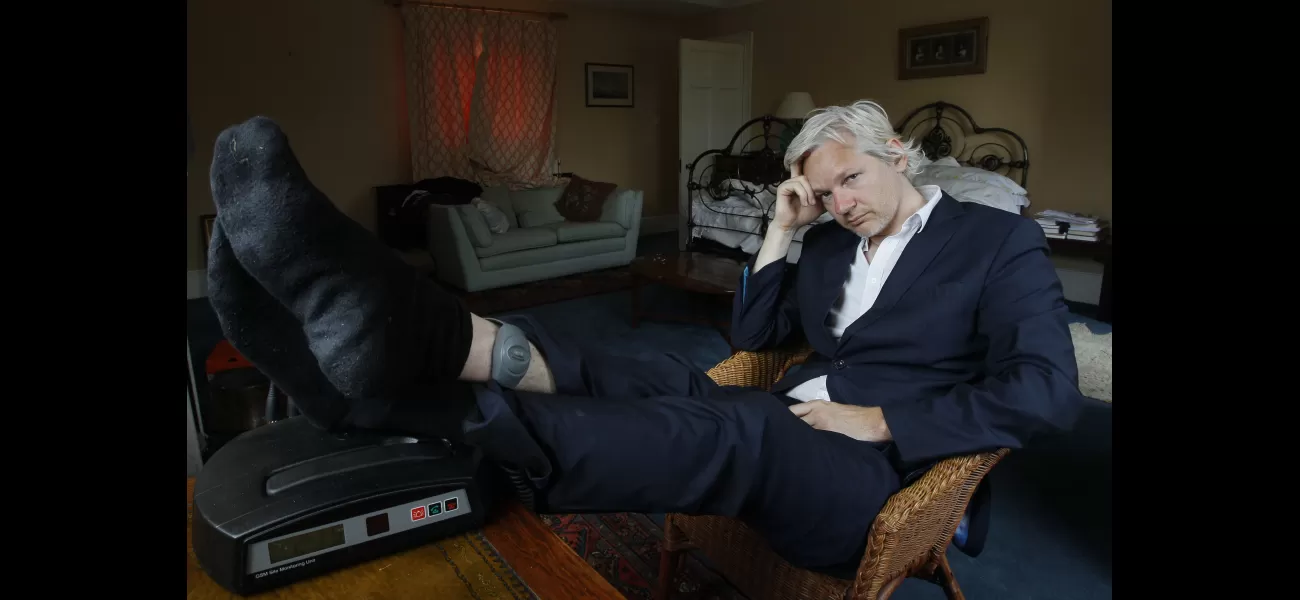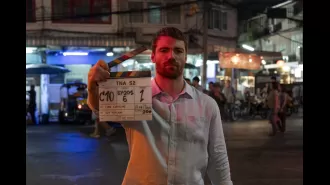After a 12-year pursuit, the US is allowing Assange to go free.
The Wikileaks founder has been constantly facing legal threats since 2010.
June 26th 2024.

A plea deal has been reached with Julian Assange, the founder of WikiLeaks, marking the end of a long and dramatic international saga. After 12 years of living in self-exile or prison, the Australian editor and publisher will finally gain his freedom, thanks to the US Justice Department's agreement.
For those who may not be familiar with the name, Assange gained widespread attention and notoriety for his role in the 2010 release of nearly 500,000 government documents related to the US wars in Iraq and Afghanistan. His actions, while praised by press freedom advocates, also put him in the crosshairs of American prosecutors.
Assange's journey began in 2006 when he founded WikiLeaks as a platform for exposing corruption and secret government operations. But the website has since expanded its scope and released a variety of sensitive materials, including emails from Sarah Palin and a membership list of a far-right British political party.
However, it was the release of classified US military information in 2010 that brought Assange and WikiLeaks into the spotlight. The leaked footage from an Apache helicopter showing civilians being gunned down in Baghdad by American troops sparked outrage and cemented Assange's position as a controversial figure.
In 2019, the Trump administration's Justice Department charged Assange with conspiring with former Army intelligence analyst Chelsea Manning to illegally obtain and publish government records. The indictment accused Assange of endangering national security and exposing confidential human sources in war zones.
Manning was sentenced to 35 years in prison but was later released by President Barack Obama. Meanwhile, Assange has spent the past five years fighting extradition to the US from a British prison. His legal battles have been met with numerous delays and setbacks, including a recent ruling that he can appeal his case based on free-speech protections.
However, with the recent plea deal, Assange will have to plead guilty to a felony charge and is expected to return to his home country of Australia after sentencing. The hearing is set to take place on Wednesday in Saipan, the largest island in the Mariana Islands, due to Assange's refusal to travel to the continental US.
It's worth noting that while Assange and WikiLeaks have been linked to the 2016 US presidential election, the current case against him is not connected to those events. However, the website did release a large number of Democratic emails that were allegedly stolen by Russian intelligence operatives in an attempt to sway the election in favor of Donald Trump.
Despite Assange's denial of any involvement with Russia, his role in the election has been heavily scrutinized and was even investigated by special counsel Robert Mueller. While he was not charged as a result of the investigation, it did shed light on WikiLeaks' alleged involvement in Russian election interference.
In conclusion, the plea deal with Julian Assange marks the end of a long and complex legal battle for the controversial figure. While he may have been seen as a hero by some and a threat to national security by others, his impact on the world of journalism and politics cannot be denied.
For those who may not be familiar with the name, Assange gained widespread attention and notoriety for his role in the 2010 release of nearly 500,000 government documents related to the US wars in Iraq and Afghanistan. His actions, while praised by press freedom advocates, also put him in the crosshairs of American prosecutors.
Assange's journey began in 2006 when he founded WikiLeaks as a platform for exposing corruption and secret government operations. But the website has since expanded its scope and released a variety of sensitive materials, including emails from Sarah Palin and a membership list of a far-right British political party.
However, it was the release of classified US military information in 2010 that brought Assange and WikiLeaks into the spotlight. The leaked footage from an Apache helicopter showing civilians being gunned down in Baghdad by American troops sparked outrage and cemented Assange's position as a controversial figure.
In 2019, the Trump administration's Justice Department charged Assange with conspiring with former Army intelligence analyst Chelsea Manning to illegally obtain and publish government records. The indictment accused Assange of endangering national security and exposing confidential human sources in war zones.
Manning was sentenced to 35 years in prison but was later released by President Barack Obama. Meanwhile, Assange has spent the past five years fighting extradition to the US from a British prison. His legal battles have been met with numerous delays and setbacks, including a recent ruling that he can appeal his case based on free-speech protections.
However, with the recent plea deal, Assange will have to plead guilty to a felony charge and is expected to return to his home country of Australia after sentencing. The hearing is set to take place on Wednesday in Saipan, the largest island in the Mariana Islands, due to Assange's refusal to travel to the continental US.
It's worth noting that while Assange and WikiLeaks have been linked to the 2016 US presidential election, the current case against him is not connected to those events. However, the website did release a large number of Democratic emails that were allegedly stolen by Russian intelligence operatives in an attempt to sway the election in favor of Donald Trump.
Despite Assange's denial of any involvement with Russia, his role in the election has been heavily scrutinized and was even investigated by special counsel Robert Mueller. While he was not charged as a result of the investigation, it did shed light on WikiLeaks' alleged involvement in Russian election interference.
In conclusion, the plea deal with Julian Assange marks the end of a long and complex legal battle for the controversial figure. While he may have been seen as a hero by some and a threat to national security by others, his impact on the world of journalism and politics cannot be denied.
[This article has been trending online recently and has been generated with AI. Your feed is customized.]
[Generative AI is experimental.]
0
0
Submit Comment





